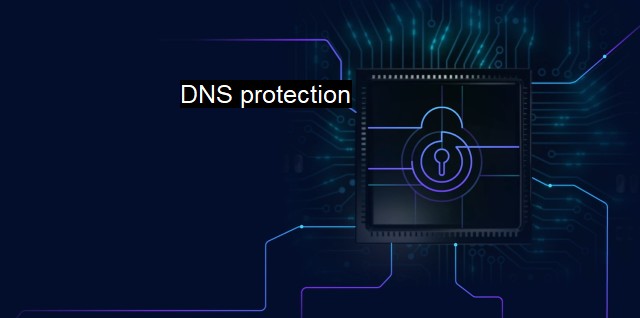What is DNS protection?
DNS Protection: Strengthening Cybersecurity Measures along with Antivirus Solutions
DNS protection, or Domain Name System protection, serves an essential role in ensuring internet users' security online. Understanding what DNS protection is, the threats it mitigates, and the overall implications for cybersecurity helps in appreciating its value.DNS or Domain Name System is like a phone book of the internet. It's the system that translates domain names, which are meaningful to humans, into IP addresses that machines use to identify each other on the network. Without DNS, you would have to remember all the IP addresses of the websites you want to visit – an impractical and tremendously complicated task, considering the vastness of the internet.
While DNS is critical for internet usability, it exposes users to several threats, many of which DNS protection aims to mitigate. Threats can range from Distributed Denial of Service (DDoS) attacks to malware downloads or phishing attempts.
One common threat in the cybersecurity world is DNS spoofing or DNS cache poisoning, where hackers corrupt DNS data to redirect queries to malicious websites. Users can unknowingly enter their information into these malicious sites, resulting in possible data theft or malware downloads. DNS protection mitigates this risk by authenticating all DNS response data, ensuring it comes from legitimate and secure sources before being served to the user.
Another threat is DNS amplification attacks, a type of DDoS attack that abuse publically accessible, open DNS servers to overwhelm a target system with DNS response traffic. DNS protection helps to prevent DNS servers from being harnessed for such attacks by implementing measures like denial lists or rate limiting.
Distributed Denial of Service (DDoS) attacks operate by overwhelming target websites with high volumes of traffic, forcing the sites to crash under the load and preventing legitimate users from accessing the website. Some forms of DNS protection block DDoS attacks by identifying and nullifying these traffic sources, protecting businesses and their clients from service outages.
DNS protection usually takes various security measures to offer users an extra layer of security. Threat intelligence feeds are one of these measures as they enable DNS servers to identify and block known malicious domains automatically, stopping threats before they even reach the network. This proactive approach can keep many attacks at bay, maintain system performance levels, and reduce downtime.
Secure authentication is also a vital part of DNS protection. DNS security extensions, particularly DNSSEC, mitigate DNS spoofing risks by signing DNS data digitally. DNSSEC creates a certain level of trust by ensuring that the data received is precisely the same data that corresponds with a specific domain name.
DNS firewall is another important element of DNS protection. It acts as a protective shield between your network and the internet, inspecting every DNS query for recognised malicious behaviour or content before it enters or leaves your network. The firewall can then nullify or reroute malicious traffic to mitigate potential threats.
DNS protection helps prevent identity theft, protect privacy, block out malware, and keep data secure. With more businesses moving online and exploding amounts of data being shared and consumed on the internet, integrating DNS protection into cybersecurity strategies becomes increasingly important. It's not just about protecting a single point of failure; DNS security is about creating a layered defense system that adeptly mitigates the ever-evolving threats faced in the digital world. the significant role of DNS protection is more preventive than remedial, making it a crucial component in upholding overall internet security.

DNS protection FAQs
What is DNS protection?
DNS Protection is a cybersecurity measure that aims to protect networks and devices from malicious threats that exploit the Domain Name System (DNS). It provides an extra layer of security that prevents unauthorized access, malware attacks, and phishing attempts that can compromise your system's integrity.Why is DNS protection important for cybersecurity?
DNS protection is essential for cybersecurity because it acts as a gatekeeper between your devices and the internet. Without DNS protection, cybercriminals can use DNS exploits to redirect your internet traffic to their malicious sites, steal sensitive data, or introduce malware to your system. By implementing DNS protection, you can block these attacks, keep your data safe, and prevent any unwanted access.What are the benefits of using DNS protection?
The benefits of using DNS protection include:How does DNS protection work?
1. Enhanced security: DNS protection adds an extra layer of security to your network, preventing malware, phishing, and other cyber threats from accessing your device.| | A | | | B | | | C | | | D | | | E | | | F | | | G | | | H | | | I | | | J | | | K | | | L | | | M | |
| | N | | | O | | | P | | | Q | | | R | | | S | | | T | | | U | | | V | | | W | | | X | | | Y | | | Z | |
| | 1 | | | 2 | | | 3 | | | 4 | | | 7 | | | 8 | | |||||||